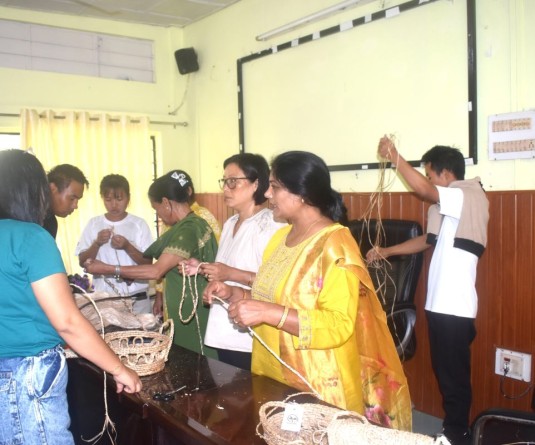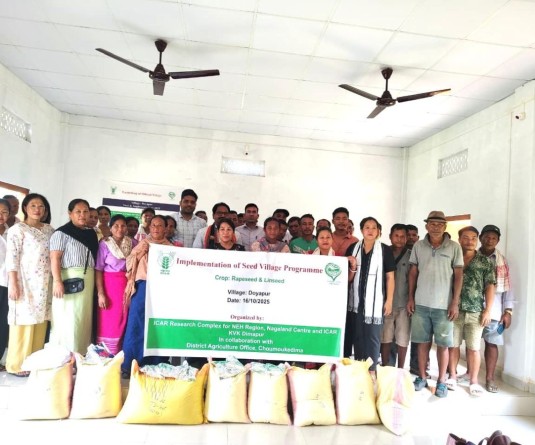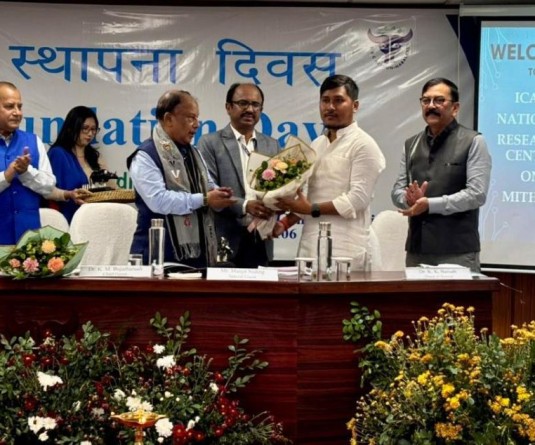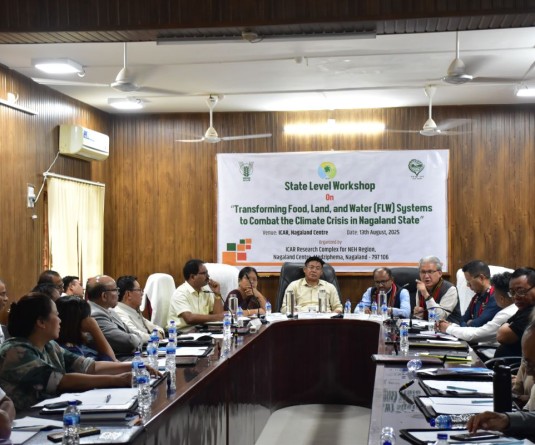Photo Courtesy: Twitter@Department of AH & http://Vety.Services
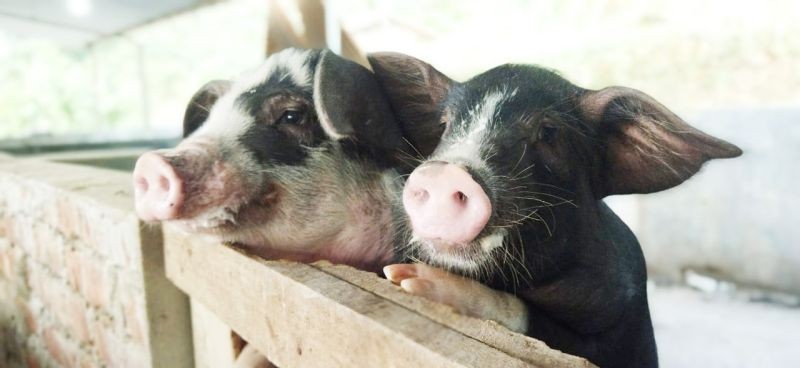
ICAR organises workshop for women farmers
Medziphema, March 1 (MExN): ICAR Nagaland Centre, Medziphema organized two-day workshop on ‘suggestive policy measures for sustainable livelihood of tribal women on pig marketing in Nagaland.’
It was held under NASF Project- ‘pork marketing chains in north east india for sustainable livelihood of tribal women (Assam, Meghalaya and Nagaland)’ on February 25 and 26, stated a press release received here.
Dr M Catherine Rutsa, Associate Professor, Department of Livestock Production and Management, SASRD, Medziphema pointed out that traders in Nagaland do not operate locally but are traded from Assam, Haryana, Punjab and other states of India. “The indigenous marketing channel of Nagaland do not have traders, in fact pigs reared by local people do not go in the hands of traders. The local producers directly trade with the consumers. Therefore, there are no organized traders in Nagaland,” she said.
Dr Catherine mentioned that in Nagaland, 70%-75% main custodian of pigs are women and Pig Field School seems to be a new innovative way to organize piggery as suggested in the meeting and should be adopted in Nagaland.
Dr Mahak Singh, Scientist, Animal Reproduction, ICAR Nagaland presented various initiatives taken up by the Centre to enhance the pig productivity. He highlighted the different improved technologies to improve the pig production like improved germplasm of pig, artificial ionsemination in pig, low cost pig feed and estrous synchronization. He also presented that ICAR, Nagaland has supplied 9000 improved pig germplasm to the producers.
Dr Mahak emphasized that with 20 kg requirement of per capita pork in Nagaland, there is requirement of around eight lakh adult pig for slaughtering which is double than current pig population.
Dr Mahua Bhattacharjee, Professor & Principal Investigator (PI) from the lead institute AUUP reported that Nagaland had a completely different value chain as compared to other states. It was found that the trader was also acting as the wholesaler and, the butcher was the one who acted as a retailer. “Also, in the indigenous pig marketing system there was an absence of trader. Traders who import pigs from all over India reaped the benefits of cost difference,” Dr Mahua observed.
Seve R Vadeo, a pig farm entrepreneur from Seithekiema stated that the profit percentage has decreased from past few years due to rise in feed cost. The major constraint in establishing pig farm was poor financial assistance. Dr Arun Kumar Sangwan, Dean, College of Veterinary Sciences, Jalukie, stated that feed is a major issue for sustainability of pig farming.
A total of 30 women pig farmers under the aegis of Chakhesang Women Welfare Society, Pfutsero participated in the workshop. The women farmers were organized in three different groups for implementation of customized knowledge products to evaluate its sustainability.
Earlier, Dr D J Rajkhowa, Joint Director, ICAR Nagaland welcome the participants and gave a brief remark about challenges faced by piggery sector in Nagaland.


